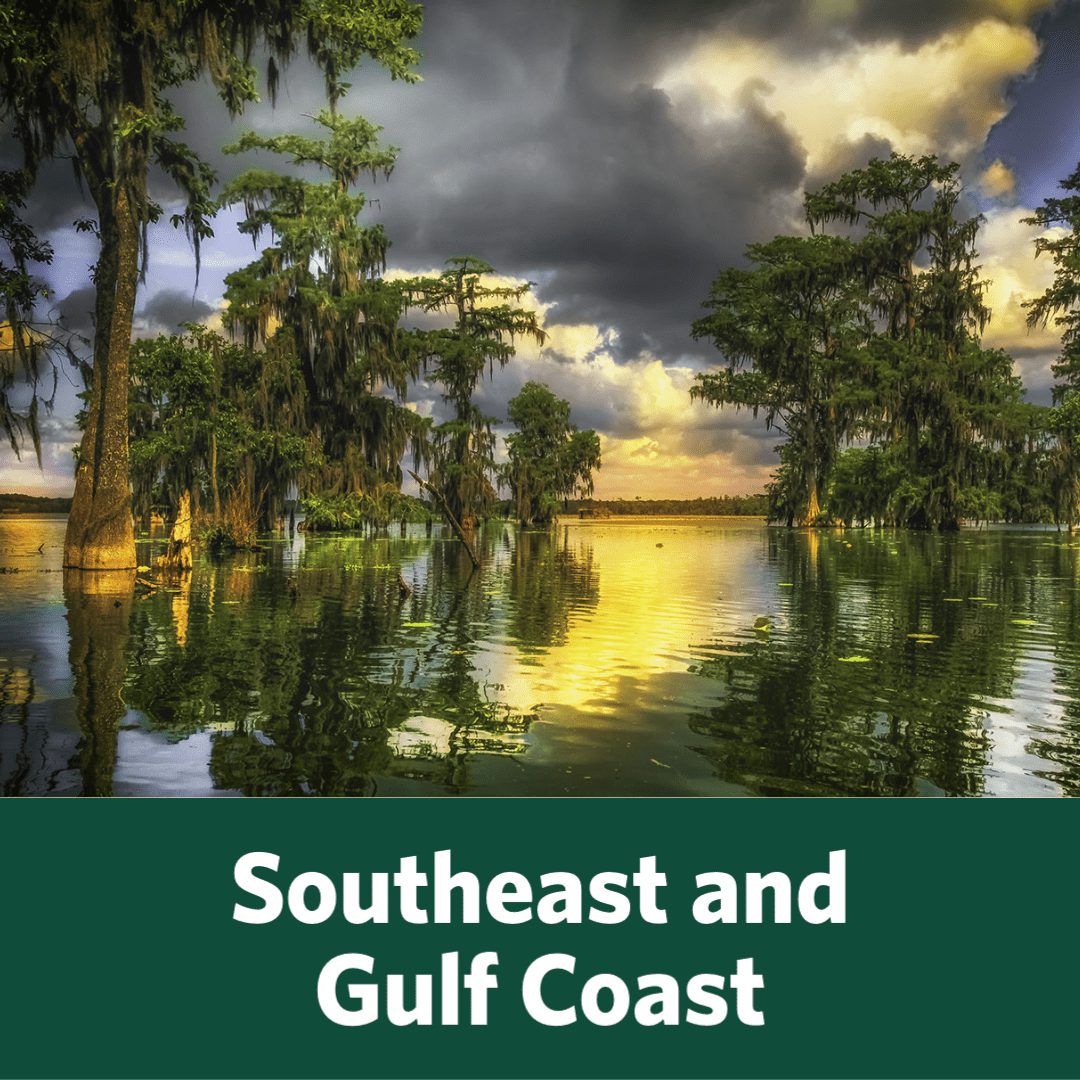Southeast and Gulf Coast Regional Office

Colleen Teubner, JD
phone: (202) 464-2293
[email protected]
Barry Sulkin, Technical Consultant
phone: (615) 255-2079
[email protected]
From the southern Appalachian mountains to the beautiful sandy beaches of Florida, to the rich, diverse ecosystems of the Gulf Coast, the Southeast and Gulf Coast of the United States supports a wide range of industries, agriculture, fisheries, tourism, and recreation. But the fragile environment in these areas is weakening and under attack, an attack often advanced by government agencies and powerful interest groups. Our challenge is to right the ship to ensure that the area’s precious ecosystems are preserved for generations to come.
One area of focus for PEER is in Florida, where we are actively engaged in helping state and local employees do their jobs. These employees often find that they are marginalized, even blackballed, if they try to abide by the very laws that they are sworn to uphold. PEER’s work is focused on protecting these employees and shining a light on the government’s failure to do its job.
Unfortunately, an eroding of environmental and public health protections is common not only in Florida, but throughout the entire region, and at all levels of government. If these trends are not changed, the destruction of the region’s fragile environment and its natural resources- will continue, ultimately causing a continued die-off of wildlife, more polluted waters, poorer health outcomes, and a weaker economy.
Florida Pollution Enforcement Reports
 Since 2004, PEER has examined Florida Department of Environmental Protection (DEP) files to assess pollution enforcement. In a state heavily reliant on its natural beauty for tourism revenue, it has fallen far short of acceptable pollution levels primarily in its waterways and wastewater management.
Since 2004, PEER has examined Florida Department of Environmental Protection (DEP) files to assess pollution enforcement. In a state heavily reliant on its natural beauty for tourism revenue, it has fallen far short of acceptable pollution levels primarily in its waterways and wastewater management.
Despite pledges to strengthen pollution enforcement, Florida state records show declines in virtually all meaningful measures. Notably, violations and significant noncompliance with pollution limits are growing while major enforcement actions are declining.
NEWS FROM THE SOUTHEAST AND GULF COAST
Conservation Groups Call on Park Service to Protect the Florida Panther
Park Service Should Not Have Opened More Routes to Off-Road Vehicles in Big Cypress National Preserve
Call for Federal Takeover of Florida Pollution Enforcement
Petition Charges State Inaction on Toxic Dump Violates Federal Law
New Florida Environment Chief Has Poor Enforcement Record
Latest Numbers Show Fewer New Cases but More Fines than Historic Lows in 2005
Florida Lab Manager Files Whistleblower Complaint
State Terminated Scientist After He Disclosed Problems to the Inspector General
Florida Waives Water Pollution Reporting Rules
Industry Told Not to Bother Submitting Data Qualifiers on Pollution Reports
Florida Lab Manager Blamed for Data Showing High Pollution
State Wants to Dump Five Years of Samples from Everglades, Lake O and Estuaries
Florida Plan Dims Prospects for Manatee Survival
State Lowers Protections Despite Record Deaths and Projected Population Decline
Pollution Penalties Plummet in Florida
Enforcement at Near Record Low Levels; “Pay-to-Pollute” is the Norm
TENNESSEE’S ROAN CREEK “MOST ENDANGERED”
Roan #5 on annual list released today-www.americanrivers.org (Washington, D.C.) American Rivers and its partners today named Tennessee’s Roan Creek as one of the nation’s Most Endangered Rivers for 2005, citing the threat that construction of a factory farm would have...
FLORIDA FWS BIOLOGISTS ORDERED TO APPROVE ALL DEVELOPMENT
Panther Called a “Zoo Species”— Protecting Wild Habitat Futile
LAWSUIT FILED TO SAVE VALUABLE TENNESSEE WETLANDS
Wetlands at Risk of Destruction under Misguided Federal Policy
Florida’s Environment – More Violation Notices but Less Results
Cleanups and Civil Fines Down in ’04; “Traffic Ticket” Mentality Decried
STATE & NATIONAL CONSERVATION GROUPS SET TO SUE FEDERAL AGENCIES TO PROTECT TENNESSEE WETLANDS
Challenges Administration Policy on “Isolated Waters”